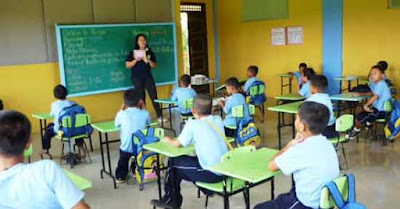Ghana Schools And Their Curriculums
In our last lesson, we learned about what an educational curriculum is, how they’re developed and its importance.
If you haven’t already, I suggest you learn more from here:
In this lesson, however, we want to turn our attention to the forms of curriculums used in Ghana and it impacts on our young kids.
When it comes to education in Ghana, most expats find the national curriculum to be limited, teaching methods to be outdated and the standard of facilities to be lower than what they would be used to back at home. For these reasons, expats tend to bypass public schooling options in Ghana and send their children to an international school.
Most international schools in Ghana are in the capital, Accra. The major advantage of these schools is that they follow various foreign curricula that allow expat students to have an easier transition. The standard of teaching at international schools tends to be high and facilities are in line with those in Europe or North America.
Most international schools in Ghana are in the capital, Accra. The major advantage of these schools is that they follow various foreign curricula that allow expat students to have an easier transition. The standard of teaching at international schools tends to be high and facilities are in line with those in Europe or North America.
Curriculum of public schools in Ghana
A new Education Plan was initiated in 2007 which will provide universal free primary education by 2015. Former problems within equable enrollment with more males than females has since equaled out. Most Ghanaians have relatively easy access to primary and secondary education, but costs such as school fees, uniforms, and school equipment can be prohibitive for some families.
In September of this year, Ghana initiated a new educational plan by the name free SHS. By free SHS what it means is that in addition to tuition which is already free, there will be no admission fee, no library fee, no science centre fee, no computer lab fee, no examination fee, and no utility fee; there will be free textbooks, free boarding, and free meals, and day students will get a meal at school for free. The free SHS also will mean that agricultural, vocational and technical institutions at the high school level will all be free.
You can learn more about the Ghana’s free SHS and what it entails from here:
Almost all public schools in Ghana follows GES curriculum. Children begin their education at nursery school at the age of three or four. From there, they enter kindergarten followed by primary, junior and senior high school.
The official language of instruction throughout the Ghanaian educational system is English. At the end of Junior High School (9th grade), students take the Basic Education Certificate Examination (BECE) and at the end of Senior High School (12th grade), students take the West African Senior Secondary Certificate Examination (WASSCE). These exams are given nationwide each year and results available. The Grading is tough with fewer than 3% receiving A grades.
Curriculums’ of international schools in Ghana
International schools can be the perfect solution for an expat student (multinational corporation executives, children of diplomats, NGO staff) in Ghana. There may be some local population, but the schools are usually geared for an international student body.
Schools follow a curriculum model from the US, UK, or France. Primary instruction may be any language (and multiple languages are usually taught), but it is usually in English or French. Schools provide similar standards of schooling around the globe, providing for an easy transition between schools whether they are in France or Vietnam. Schools also provide internationally accepted accreditation such as the international baccalaureate or International General Certificate of Secondary Education (IGCSE)
There aren't many international schools outside of Accra, so expat parents in other regions often choose to homeschool their children.
The international schools are all quite different in terms of tuition fees, standards and diplomas offered.
The international schools are all quite different in terms of tuition fees, standards and diplomas offered.
Admission and enrollment procedures vary from school to school. Space is often limited and preference may be given to students based on nationality. Tuition tends to be expensive based on local standards, but offers high standards of learning, boast smaller class sizes, first-rate facilities, and extracurricular. Boarding facilities are available at some schools, but most only provide day classes.
Hope you’ve had a ton of value from this post, most importantly; I hope you’ve understood the different forms of curriculums used here in Ghana.
In our next lesson, we would be looking at some popular international schools in Ghana and the curriculum types they follow.
How to identify your child’s learning style is a special report design to help you find the best way of learning that will best suit your child using his/her personality type.
Click here to download this special report for FREE.
Best Regards.




Comments
Post a Comment